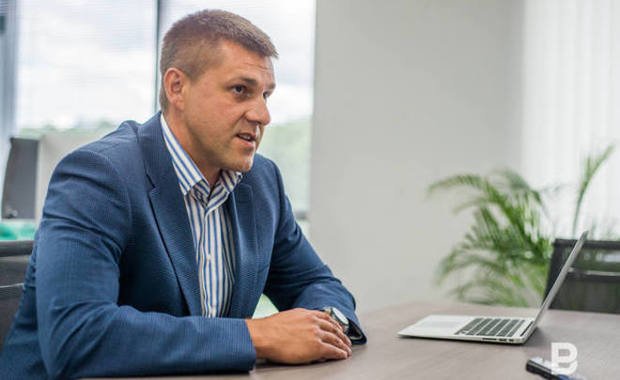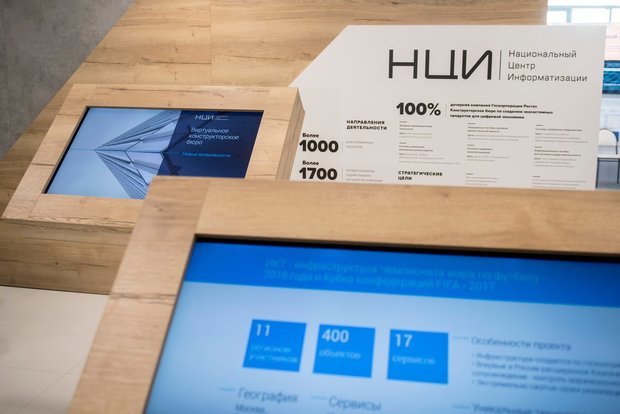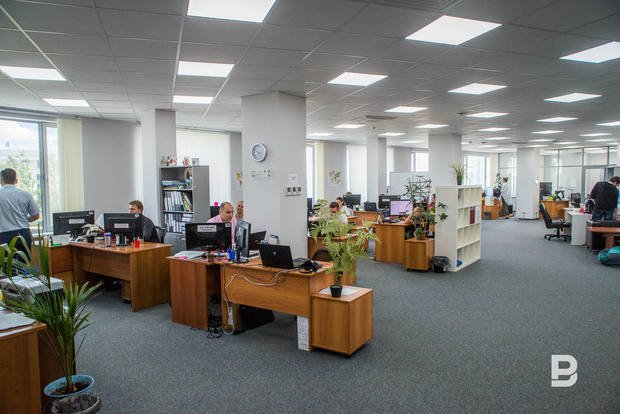Takeover cancelled: BARS Group remains private
Rostec changed its mind to purchase the biggest IT developer
Rostec state corporation, which was going to become the only owner of BARS Group from Tatarstan two years ago, refused this idea and decided to purchase only 25% and one share. Rostec says now they don't see the necessity to take control of partnership projects and a quarter in the authorised capital is the best option. According to other data, there wasn't enough money to purchase all BARS Group. Realnoe Vremya tells the details.
''The situation has changed''
In April 2016, BARS Group announced it was part of Rostec. As it was said, one of the subsidiary companies of the state corporation – National Informatisation Centre (NIC) – was going to purchase 100% of the IT developer from Kazan from Timur Akhmerov, the only owner at that moment. The united team of BARS Group and the NIC was going to create national software for ''critically important areas and sectors'', including cloud platforms and mobile applications.
After announcing the takeover, Director General of the NIC Konstantin Solodukhin said ''we will create prerequisites for the appearance of a competitive Russian software'' by uniting efforts of the two companies. He added that BARS Group had big working experience with public consumers: for instance, the company had already been cooperating with the Ministry of Finance, Federal Treasury, Ministry of Culture, Pension Fund, Ministry of Emergency and Federal Protective Service.
According to SPARK-Interfax, the NIC joined the capital of BARS Group as early as 2016 and got more than 20%. The share was supposed to grow gradually.

Two weeks ago it became known the complete acquisition wouldn't happen: the NIC became the owner of just 25% and one share of BARS Group. The deal closed, Akhmerov remained the holder of the remaining 75% of shares of the company.
We couldn't obtain a comment of BARS Group before publication.
''We need to consider that the situation has changed since it was decided to join the capital of BARS Group. The portfolio of investment projects of the NIC has widened, the company has invested several high-tech projects, as a result of which accents in our business strategy have considerably changed. In this respect, at this stage, Rostec doesn't see the necessity to increase the share in partnership companies to 100%,'' Realnoe Vremya was said in the state corporation's press service.
As Rostec explains, now it was decided to deal with new projects from a perspective of public and private partnership – ''it's a format combining advantages of private capital, market approach and possibilities of the state corporation''.
25% with one share is the position that meets interests of both sides. Rostec conserves its financial and operational control, participates in decision-making on key development issues of BARS Group. The state corporation delegated its two representatives to the board of directors of the Kazan company. ''Meanwhile, the current ownership structure enables the state corporation not to sink into the current management of the company and minimises our risks,'' says the press service.

Matter of money?
However, RBK says the reason for the refusal of the total control could be different: probably there wasn't enough money to purchase the 100% of BARS Group. The Kazan company exceeded the NIC in revenue and net profit volume several years ago. For instance, in 2016, revenue of BARS Group was 1,9bn rubles, profit – 129,3m; during the same period, Rostec's subsidiary company got 781,2m rubles of revenue and 36,5m rubles of net profit.
One of the sources of the newspaper told that the NIC was initially created as a joint project of Rostec and Rostelecom. The latter allegedly was to become the co-owner of the NIC but didn't. Due to that, the company didn't get the financial result it had counted on.
Representatives of Rostec deny the version of the failure of the initial plan of the deal because of the lack of money. ''Parameters of the deal with BARS Group aren't linked with the current economic situation of the NIC. The NIC is in a sustainable financial situation. The company's revenue rose to 3,2bn rubles in 2017, which quadrupled last year's results. We expect this indicator to grow in 2018 to 7,5bn rubles thanks to the completion of several big federal IT projects,'' says the press service.
Two years ago, Vedomosti wrote that the NIC was going to pay 1,6-1,8bn rubles for the 100% of the Kazan developer. Rostec hasn't revealed the purchasing price for the 25%.

Profitable B2G
After announcing the takeover of the NIC, BARS Group fulfilled several new projects. Last year, at the request of the Main Department of State Expertise, the company developed the third information system ''Pricing in Construction'' and started to work on applied software for the Federal Tax Service. Now more than 1,000 establishments of the FTS are using it, more than 4,000 unique users are working in the system, says BARS Group's page.
''It would have been probably better for BARS Group if they had been acquired – at least it would have solved problems of further financing. Now the company will work cooperating [with the NIC] within the package that Rostec has now,'' says head editor of TelecomDaily Denis Kuskov.
It's difficult to say the place of BARS Group in the hierarchy of Russian IT developers. But the B2G segment, in which mainly the company works, is one of the most prospective now. Public bodies are the category of customers whose demand doesn't reduce but only grows,'' notices Kuskov.